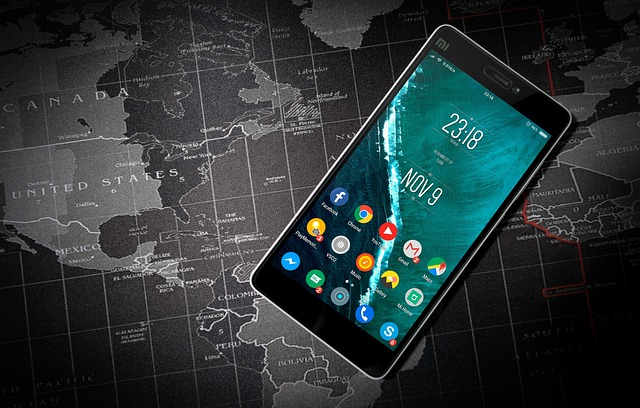Robocalls, while sometimes useful, are a growing source of fraud and identity theft in New Jersey, where privacy laws are strict. Nonprofits leverage the Telephone Consumer Protection Act (TCPA) to sue for damages from unauthorized robocalls, providing legal guidance and support to residents. By filing complaints, joining nonprofit organizations, and consulting consumer protection attorneys, individuals can reclaim control over their daily lives and protect themselves from financial loss or identity compromise, including understanding if they can I sue for robocalls New Jersey.
In the digital age, robocalls have become a pervasive and frustrating issue for residents of New Jersey, leading many to seek solutions. Nonprofit organizations play a crucial role in combating this growing problem. This article explores strategies and legal frameworks available to these groups, focusing on their impact in NJ. From understanding the scope of the issue to examining if nonprofits can sue for robocalls under state laws, we delve into effective tactics that are making a difference. Learn how you can contribute to the fight against intrusive automated calls.
Understanding Robocalls and Their Impact in New Jersey

Robocalls, automated phone calls that deliver pre-recorded messages, have become a ubiquitous and often annoying aspect of modern life in New Jersey, as across the nation. While many robocalls promote legitimate services or organizations, they are also frequently associated with fraud, identity theft, and unwanted marketing tactics. In NJ, where privacy laws are stringent, residents face unique challenges when it comes to dealing with these intrusive calls.
The impact of robocalls is profound: from causing distress and disrupting daily life to potentially leading to financial loss or identity compromise. While federal and state laws exist to mitigate these issues—including the Telephone Consumer Protection Act (TCPA)—the sheer volume of robocalls continues to grow due to advances in technology and the ease with which scammers can access phone networks. Understanding one’s rights, such as the possibility of suing for robocalls in New Jersey, is a crucial step in combating this pervasive problem.
The Legal Framework: Can Nonprofits Sue for Robocalls?

In the battle against robocalls, consumers often turn to government regulatory bodies for relief. However, nonprofits play a significant role in combating this growing issue as well. While they may not have the same legal capabilities as governmental entities, nonprofits can still take action against robocallers through existing legal frameworks.
In New Jersey, as in many states, there are laws in place to protect consumers from unwanted phone calls, including robocalls. Nonprofits can utilize these laws to their advantage. The Telephone Consumer Protection Act (TCPA) allows individuals and organizations to sue for damages if they receive robocalls without prior consent. This legislation provides a legal pathway for nonprofits to hold robocallers accountable and seek compensation for the disturbance caused to their communities.
Strategies Nonprofits Can Employ to Combat Robocalls

Nonprofits in New Jersey play a vital role in combating robocalls, offering practical solutions and support to residents facing this modern nuisance. Given that many robocall scams target vulnerable populations, these organizations can employ diverse strategies to make a significant impact. One effective approach is to educate communities about the risks associated with answering unknown calls, promoting awareness through workshops, and distributing informative resources. Additionally, they can collaborate with telecom providers and government agencies to implement blocking technologies and report fraudulent numbers, contributing to a more robust defense against robocalls.
Moreover, nonprofits can provide legal aid and guidance on whether one can sue for robocalls in New Jersey, empowering individuals to take action against persistent and illegal telemarketing practices. By combining awareness campaigns with practical assistance, these organizations create a multi-faceted approach to protect residents from the nuisance and financial risks associated with robocalls.
Success Stories: Nonprofits Making a Difference in NJ

In the ongoing battle against robocalls, New Jersey nonprofits have emerged as unexpected champions, making significant strides in protecting residents from these unwanted intrusions. Organizations like the New Jersey Public Interest Research Group (NJPIRG) have been at the forefront, leveraging their resources and expertise to educate citizens on do-not-call rights and legal options, such as can I sue for robocalls New Jersey. Through advocacy and community engagement, they’ve empowered residents to take control of their phone lines.
These efforts have yielded tangible results, with numerous success stories across the state. For instance, NJPIRG has successfully lobbied for stricter regulations, forcing call centers to adhere to more rigorous standards. Their legal aid programs have also provided crucial support to individuals seeking redress for robocall harassment, offering guidance on can I sue for robocalls New Jersey and ensuring that wronged residents receive the justice they deserve.
How You Can Get Involved: Supporting Anti-Robocall Efforts

If you’re eager to fight back against robocalls in New Jersey, there are several ways to get involved and support anti-robocall efforts. One direct approach is to file a complaint with the Federal Communications Commission (FCC) or your state’s public utility commission. This provides valuable data for tracking and combating unwanted calls. Additionally, consider joining or supporting nonprofit organizations dedicated to addressing this issue; many groups offer resources and advice on blocking and reporting robocalls effectively.
Another crucial step is to educate yourself and others about the legal aspects of robocalls in NJ. While it may be tempting to take legal action against a company that continues to harass you with unwanted calls, it’s essential to understand the laws governing such actions. Consulting with an attorney specializing in consumer protection or telecommunications can help determine if you have a valid case, especially when considering can I sue for robocalls New Jersey. These professionals can guide you on the best course of action, ensuring your rights are protected and robocallers face consequences for their actions.






